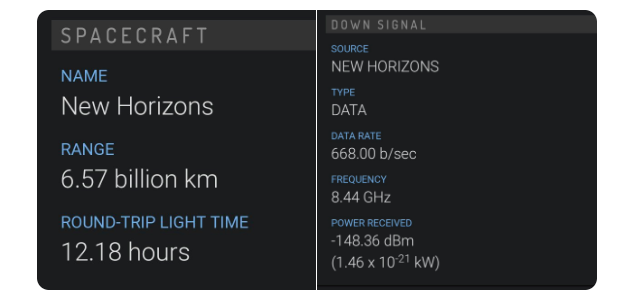Ravelry
How do you keep bigots off social media?
FACEBOOK: Wow, it's tough but we're trying! ❤️👍 TWITTER: What is "bigotry", really? RAVELRY: Our grandmothers wrote code into scarves that sunk Nazi submarines. We carry razor sharp needles everywhere and we will fuck. you. up.
In the midst of a withering year or two of big platforms abdicating (or outright denying) their civic responsibilities, fiber arts website/community Ravelry announced a new content policy that bans support for President Donald Trump on its platform.
Sunday, June 23rd 2019
We are banning support of Donald Trump and his administration on Ravelry.
This includes support in the form of forum posts, projects, patterns, profiles, and all other content. Note that your project data will never be deleted. We will never delete your Ravelry project data for any reason and if a project needs to be removed from the site, we will make sure that you have access to your data. Even if you are permanently banned from Ravelry, you will still be able to access any patterns that you purchased. Also, we will make sure that you receive a copy of your data.
We cannot provide a space that is inclusive of all and also allow support for open white supremacy. Support of the Trump administration is undeniably support for white supremacy.
The Community Guidelines have been updated with the following language: “Note that support of President Trump, his administration, or individual policies that harm marginalized groups, all constitute hate speech.”
“Everyone uses Ravelry”: why a popular knitting website’s anti-Trump stance is so significant by By Aja Romano (@ajaromano) is an excellent, long, detailed article in Vox about the new Ravelry policy.
I was curious about the reference to grandmothers who “wrote code into scarves that sunk Nazi submarines” in @bentev28’s tweet. Vox/Romano linked to this fascinating Atlas Obscura article by Natalie Zarrelli, 1 June 2017, The Wartime Spies Who Used Knitting as an Espionage Tool.
Also in the Vox article I learned that the gaming site RPG.net banned Trump support in October 2018.
The following policy announcement is the result of over a year of serious debate by the moderation team. The decision is as close to unanimous as we ever get. It will not be the subject of further debate. We have fully considered the downsides and ultimately decided we have to stay true to our values. We will not pretend that evil isn’t evil, or that it becomes a legitimate difference of political opinion if you put a suit and tie on it.
We are banning support of Donald Trump or his administration on the RPGnet forums. This is because his public comments, policies, and the makeup of his administration are so wholly incompatible with our values that formal political neutrality is not tenable. We can be welcoming to (for example) persons of every ethnicity who want to talk about games, or we can allow support for open white supremacy. Not both. Below will be an outline of the policy and a very incomplete set of citations.
We have a community here that we’ve built carefully over time, and support for elected hate groups aren’t welcome here. We can't save the world, but we can protect and care for the small patch that is this board.
“It’s not easy to persuade citizens of a democracy to accept real financial sacrifice in the here and now for the sake of a diffuse benefit in the future.”
But there are so many of them
Former YouTube engineer Guillaume Chaslot, an artificial intelligence expert who once worked to develop the platform’s recommendation algorithm, says he discovered the severity of the problem, which he believes he helped create, on a long bus ride through his native France in 2014, the year after he left the company. A man sitting on the seat next to him was watching a succession of videos claiming that the government had a secret plan to kill one-quarter of the population. Right after one video finished, another started automatically, making roughly the same claim.
Chaslot tried to explain to the man that the conspiracy was obviously untrue and that YouTube’s recommendation engine was simply serving up more of what it thought he wanted. The man at first appeared to understand, Chaslot said, but then concluded: “But there are so many of them.”
Regardless of who you are
“A question occupies me today: How to silence the censor inside me when faced with a growing sense of foreboding, even at times fear? How to invent, from this moment and this pressure, something radical, bound-breaking, new?”
“Talking to the Kuiper belt is like talking to an Ent, from the other side of the forest.”
A quality assurance engineer walks into a bar
A QA engineer walks into a bar. Orders a beer. Orders 0 beers. Orders 99999999999 beers. Orders a lizard. Orders -1 beers. Orders a ueicbksjdhd.
First real customer walks in and asks where the bathroom is. The bar bursts into flames, killing everyone.“[Lucy] Suchman showed a tape of 2 men failing at making double-sided copies. Xerox executives scoffed at the technological illiteracy of the men until Suchman pointed out that they were both computer scientists, & one was Allen Newell, winner of a Turing Award.”
“I will never tire of the best lesson that Star Trek always practices but never overly mentions — every time a person experiences something totally fucking weird and impossible, they tell someone about it and that person believes them. Then they start working the problem.”
“Even though SpongeBob worked as a hamburger cook, Mr. Hillenburg refused to license his image to sell fast food and other products he considered harmful to children. By 2009, Advertising Age magazine estimated that Nickelodeon earned $8 billion a year in sales of SpongeBob merchandise.”
The game frame
TV news analysts are typically fixated on politics as a game (who are the players? what is the strategy? who is winning/ losing?). The game frame pits parties and groups against one another in an artificially constructed battle that fails to engage with the underlying issue.
The game frame fools the public into feeling like it “totally knows what is going on” when in reality it only knows the soap opera of characters and strategy and none of the historical, economic, environmental, racial, or social context surrounding an actual issue.
And yet we feel sad
Where slowness comes from:
- Input devices
- Sample rates
- Displays and GPUs
- Cycle stacking
- Runtime overhead
- Latency by design
- User-hostile work
- Application code
…There is a deep stack of technology that makes a modern computer interface respond to a user's requests.
There is reason for this complexity, and yet we feel sad that computer users trying to be productive with these devices are so often left waiting, watching spinners, or even just with the slight but still perceptible sense that their devices simply can't keep up with them.
“The spirits will always be looking at the digital and asking ‘how can we be friends’?”
Saun Angeles Penangke, New Zealand digital forum (video), 2018
From the conference website: Shaun Angeles Penangke is a Kungarakany and Arrernte man who grew up in the central desert lands of his mother in Mparntwe, Alice Springs. He belongs to a long lineage of Kwatye-kenhe (Rainmaker) and Yerrampe (Honey ant) families whose traditional country is centred on Apmere Ayampe and Apmere Alkwepetye, both located north of Mparntwe.
Shaun is the Artwe-kenhe (Men’s) Collection Researcher at the Strehlow Research Centre, Museum and Art Gallery of the Northern Territory [Australia].
Jamokes
Here’s the interesting thing that happens when you’re president, or when you go through the experience of being president.
So, you start off, you know, you’re a community organizer and you’re struggling to try to get people to recognize each other’s common interests and you’re trying to get some project done in a small community. You start thinking, ok, you know what? This alderman’s a knucklehead. They’re resistant to doing the right thing, and so I need to get more knowledge, more power, more influence, so that I can really have an impact.
And so you go to the state legislature, and you look around and you say well, these jamokes. Not all of them, but I’m just saying, you start getting that sense of…this is just like dealing with the alderman. So, nah, I gotta do something different.
Then you go to the U.S. Senate and you’re looking around and you’re like…awww man.
And then when you’re president, you’re sitting in these international meetings, and it’s like the G20 and you got all these world leaders, and it’s the same people. Which is really interesting. Same dynamics. It’s just that there’s a bigger spotlight, there’s a bigger stage.
But I’m only partly joking about that.
The nature of human dynamics does not change from level to level.
…The way power works at every level, at the United Nations or in your neighborhood, is, do you have a community that stands behind what you stand for? And if you do you’ll have more power. And if you don’t, you won’t.
Sometimes the crazy stuff needs to happen
Can a robot have custody rights to a child? Are there consequences for mistreatment of a robot? Can a robot ask for a divorce? Who is liable for a robot’s behavior? Who is responsible for its care? Can a robot hold a copyright?
…Sometimes the crazy stuff needs to happen before you can start to see the design space.







